


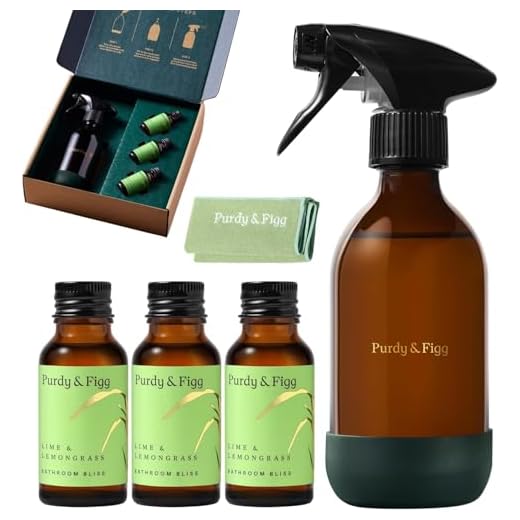

If you’ve ever struggled with limescale stains on your dishes, you’re not alone. Many people believe that using dishwasher salt is the best solution to get rid of these stubborn stains. However, it turns out that there are alternatives that you might already have at home, and you don’t actually need to rely on dishwasher salt.
One of the most effective alternatives to dishwasher salt is distilled white vinegar. This household staple can break down limescale and leave your dishes spotless. It’s easy to use – simply pour a cup of distilled vinegar into the bottom of your empty dishwasher and run a normal cycle. This simple hack can save you time and money, as you won’t need to buy dishwasher salt anymore.
Another commonly used alternative is baking soda. This versatile ingredient can work wonders when it comes to cleaning limescale. Just sprinkle baking soda on a damp sponge or cloth and scrub away the limescale. It’s important to note that you should never mix baking soda with vinegar, as the combination can create a harmful reaction. Use them separately for the best results.
In conclusion, while dishwasher salt can be effective in removing limescale stains, there are plenty of alternatives that you can use instead. From distilled white vinegar to baking soda, these homemade solutions are often cheaper and readily available. So next time you’re dealing with limescale, reach for the alternatives before you reach for that dishwasher salt.
Fact-Checked Limescale Cleaning Hack: Do I Need Dishwasher Salt?
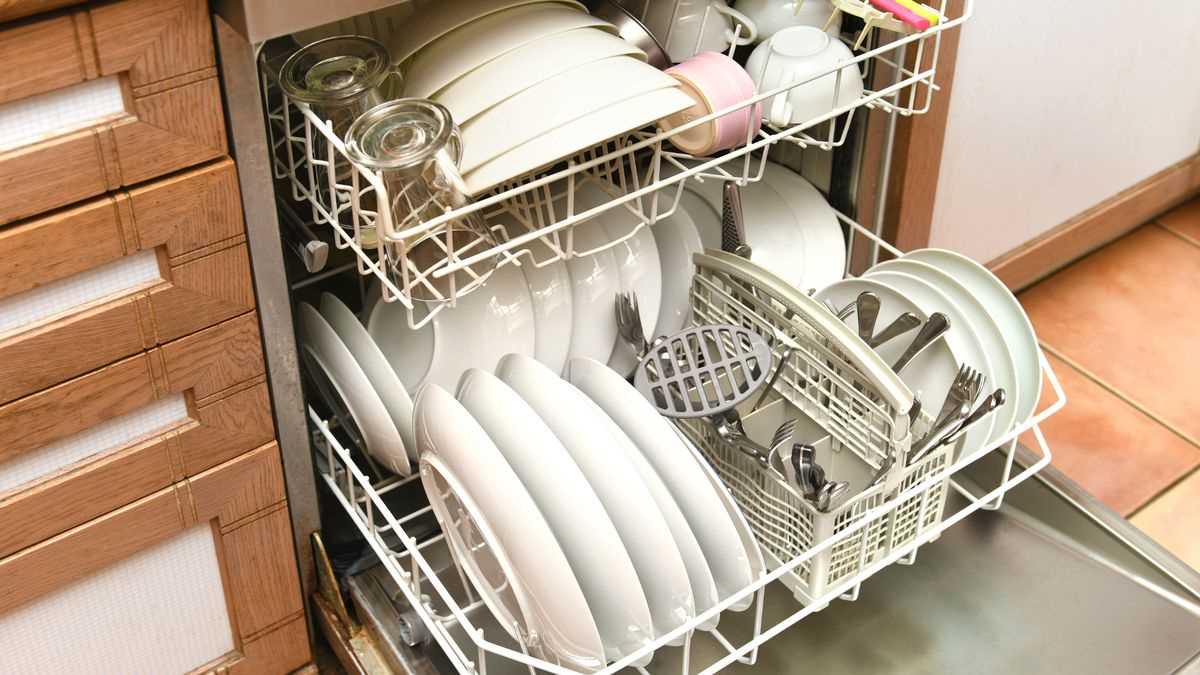
Introduction
When it comes to keeping our homes clean, one area that often causes frustration is limescale buildup in dishwashers. Limescale stains can be tough to remove and can even affect the performance of the dishwasher. This has led many people to search for alternative cleaning hacks to keep their dishwashers running smoothly.
Do Dishwashers Really Need Salt?
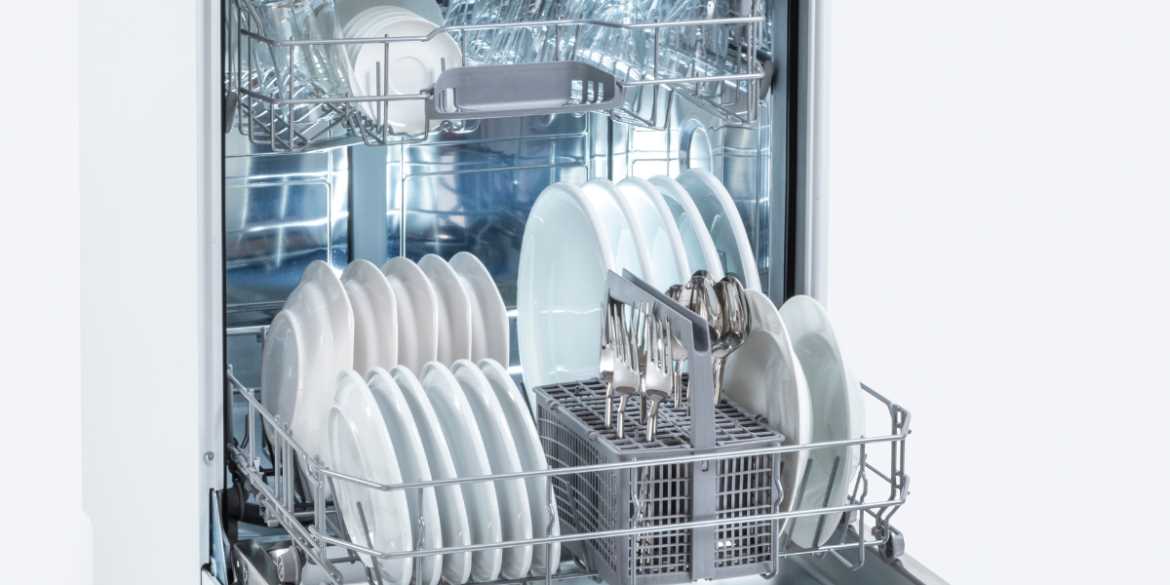
One popular DIY solution that has been trending online is the use of dishwasher salt to remove limescale. However, after fact-checking this claim, it has been determined that dishwashers do not actually require salt for everyday use.
What Can I Use Instead of Dishwasher Salt?
If you want to keep your dishwasher working efficiently without using dishwasher salt, there are several alternatives you can try:
- White Vinegar: This household staple can be used as a natural cleaning agent. Simply fill a bowl with white vinegar and place it in the top rack of your empty dishwasher. Run a hot cycle, and the vinegar will help remove limescale stains.
- Baking Soda: Another common ingredient found in most homes is baking soda. Mix a small amount with water to create a paste, and then apply it to the limescale stains in your dishwasher. Let it sit for a few minutes before scrubbing away the stains with a brush or sponge.
- Lemon Juice: The acidity of lemon juice can also help break down limescale stains. Squeeze the juice of one lemon into a bowl and apply it to the affected areas. Let it sit for a while before rinsing it off.
- Borax: This natural mineral compound can be mixed with water to create a homemade cleaning solution. Apply the mixture to the limescale stains and scrub gently. Rinse well after cleaning.
Conclusion
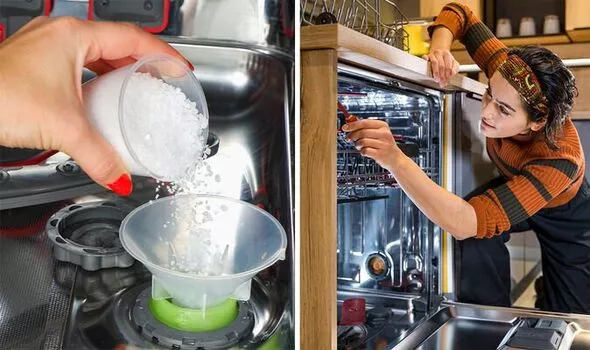
In conclusion, while dishwasher salt is often recommended, it is not necessary for everyday use. Alternatives such as white vinegar, baking soda, lemon juice, and borax can be used to effectively remove limescale stains and keep your dishwasher running smoothly. Always refer to the manufacturer’s instructions and labels for proper dishwasher care and maintenance.
Discover What to Use Instead
- Distilled vinegar: Vinegar is a versatile and effective alternative to dishwasher salt for removing limescale. Mix equal parts distilled vinegar and water, then run a cycle in your dishwasher without any dishes. The vinegar will help break down and remove limescale buildup, leaving your dishwasher clean and free from stains.
- Borax: Borax is another natural cleaning alternative that can be used instead of dishwasher salt. Mix 2 parts borax with 1 part water to create a paste. Apply the paste to any limescale stains in your dishwasher, let it sit for a few minutes, then scrub with a sponge or brush. Rinse thoroughly afterward to remove any residue.
- Lemon juice: Lemon juice is a citrus-based natural cleaner that can effectively remove limescale. Squeeze the juice of one lemon into a bowl and dip a cloth or sponge into it. Use the lemon-soaked cloth or sponge to scrub away limescale stains in your dishwasher. Rinse well with water afterward to remove any lemon residue.
- Baking soda: Baking soda is a popular household cleaner that can be used as an alternative to dishwasher salt. Make a paste using baking soda and water, then apply it to limescale stains in your dishwasher. Let it sit for a few minutes, then scrub with a sponge or brush. Rinse thoroughly to remove any residue.
- White vinegar and baking soda: For stubborn limescale stains, you can create a powerful cleaning solution by combining white vinegar and baking soda. Sprinkle baking soda on the affected areas, then spray or pour white vinegar over it. The mixture will create a fizzy reaction that helps to break down and dissolve the limescale. Scrub with a sponge or brush, then rinse thoroughly.
When using these alternative cleaning methods, it’s important to follow the instructions and safety precautions for each product. Some may require protective gloves or proper ventilation. Additionally, always take care to avoid contact with your dishwasher’s heating element or any other sensitive parts.
In conclusion, if you don’t have dishwasher salt on hand or prefer to use natural alternatives, there are several effective options. Distilled vinegar, borax, lemon juice, baking soda, and a combination of white vinegar and baking soda can all help remove limescale and keep your dishwasher clean and functioning properly.
Trending Limescale Cleaning Methods
When it comes to tackling limescale buildup, there are several trending methods that people are using to achieve a sparkling clean. Let’s take a closer look at some of these methods:
1. Baking Soda
Baking soda, also known as bicarbonate of soda, is a fine white powder that is often used as an alternative to dishwasher salt. It is a powerful cleaning agent that can help break down limescale and remove stubborn stains. To use baking soda for limescale cleaning, simply mix it with water to form a paste and apply it to the affected areas. Leave it to work its magic for a while before rinsing it off.
2. Lemon Juice
Lemon juice is another popular natural cleaner that can help remove limescale. The citric acid in lemon juice helps break down tough mineral deposits and leaves behind a refreshing scent. Simply squeeze fresh lemon juice onto a cloth or sponge and scrub away the limescale. Rinse thoroughly afterwards.
3. DIY Limescale Cleaner
You can also make your own limescale cleaner using simple ingredients found in your kitchen. One popular homemade recipe involves mixing equal parts white vinegar and water in a spray bottle. Spray the solution onto the affected areas and scrub away the limescale using a cloth or sponge. Rinse well to remove any residue.
4. Distilled White Vinegar
Distilled white vinegar is a versatile cleaning agent that can also be used to tackle limescale. Its acidity helps dissolve mineral deposits, making it an effective cleaner for dishwashers. Simply pour a cup of distilled white vinegar into the dishwasher and run a regular wash cycle. This will help remove any limescale buildup and keep your dishes sparkling clean.
5. Store-Bought Limescale Cleaners
If DIY methods aren’t your thing, there are many commercial limescale cleaners available on the market. These cleaners are specifically designed to remove limescale and keep your appliances in top condition. Always follow the instructions on the label and use as directed.
6. Dishwasher Tablets with Limescale Removal
Many dishwasher tablets on the market now contain limescale removal properties. These tablets work by dissolving limescale and preventing its buildup in the dishwasher. Simply place a tablet in the dishwasher during each wash cycle to keep limescale at bay.
Conclusion
There are several effective methods for cleaning limescale, including homemade recipes and store-bought cleaners. Whether you prefer natural solutions or commercial products, the key is to regularly clean and maintain your appliances to prevent limescale buildup. Experiment with different methods to find the one that works best for you.
Expert Tips for Removing Limescale Buildup
If you have hard water in your area, limescale buildup can be a common problem in various appliances and fixtures around your home. Limescale is a chalky white deposit that is formed when hard water evaporates, leaving behind mineral deposits. Removing limescale can be a challenging task, but with the right knowledge and tools, you can effectively get rid of it and keep your appliances working efficiently. Here are some expert tips for removing limescale buildup:
- Use specialized limescale cleaning products: There are many limescale cleaning products available in the market that are specifically designed to tackle tough limescale deposits. These products often come in the form of powders or liquids that you can use according to the instructions on the label.
- Try homemade alternatives: If you prefer a more natural approach, you can try using homemade limescale removal solutions. One popular homemade solution is a mixture of vinegar and baking soda. Simply create a paste using equal parts vinegar and baking soda, apply it to the limescale deposits, let it sit for a few minutes, and then scrub it off. This can be an effective and inexpensive alternative to store-bought cleaning products.
- Use citric acid: Another effective natural alternative for removing limescale is citric acid. You can find citric acid in the form of powdered or liquid descaler. Dissolve the citric acid in water according to the instructions on the package, and then use the solution to remove the limescale deposits. Citric acid is known for its powerful cleaning properties and can be especially effective for tackling stubborn limescale buildup.
- Prevent limescale buildup: To avoid dealing with limescale buildup in the future, it’s important to take preventive measures. Using a water softener can significantly reduce the likelihood of limescale formation in your appliances. Additionally, wiping down surfaces or fixtures that come into contact with hard water regularly can help minimize limescale deposits.
- Regular maintenance: Regularly cleaning and maintaining your appliances can also help prevent limescale buildup. Be sure to follow the manufacturer’s instructions for cleaning your specific appliances. This may involve using specific cleaning products or cleaning certain parts of the appliance on a routine basis.
By following these expert tips, you can effectively remove limescale buildup and prevent it from recurring in your home. Remember to always read and follow the instructions on the cleaning products you use and take proper care of your appliances to keep them running smoothly.
How to Prevent Limescale in Your Dishwasher
Limescale buildup is a common problem in dishwashers, but there are steps you can take to prevent it.
1. Use Dishwasher Salt
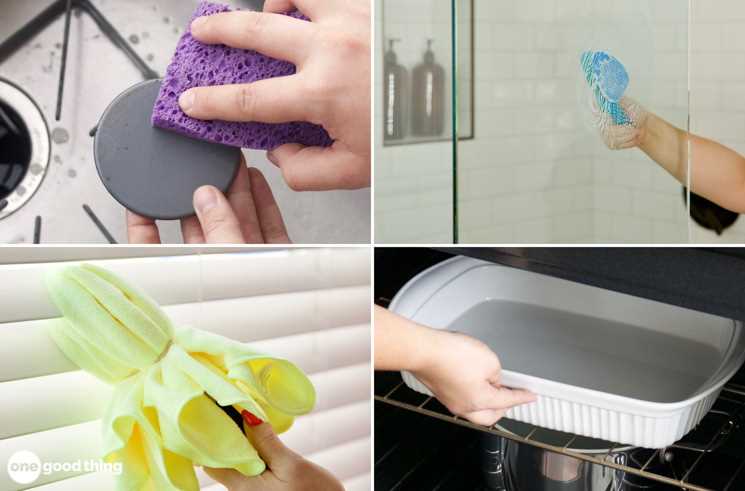
Dishwasher salt is usually used to boost the performance of automatic dishwashers and help prevent limescale from forming. By adding salt to your dishwasher, you can soften the water and reduce the effects of hard water on your dishes and dishwasher. This can result in cleaner and more efficient dishwashing.
2. Check if Your Dishwasher Requires Salt
Not all dishwashers require salt. Check the user manual or the label on your dishwasher to determine if it needs dishwasher salt. If it does, be sure to follow the manufacturer’s instructions on how to add and refill the salt.
3. Use Alternatives to Dishwasher Salt
If you don’t have dishwasher salt or prefer not to use it, there are some alternative ingredients you can try:
- Vinegar: Vinegar is an effective natural cleaner and can help remove limescale buildup. Fill a cup with white vinegar and place it on the top rack of your dishwasher before running a cycle.
- Lemon juice: Lemon juice is another natural acidic cleaner that can help prevent limescale. Squeeze the juice of one lemon into a cup and place it in the top rack of your dishwasher.
- Baking soda: Baking soda is a versatile cleaning agent that can be used to remove limescale. Sprinkle some baking soda at the bottom of your dishwasher before running a cycle.
- Citric acid: Citric acid can be found in powdered form and can be used as a limescale remover. Follow the instructions on the packaging for proper usage.
4. Regularly Clean and Maintain Your Dishwasher

To prevent limescale buildup, it’s important to keep your dishwasher clean and well-maintained. Here are some tips:
- Remove any food particles from your dishes before loading them into the dishwasher.
- Check and clean the dishwasher filter regularly.
- Run an empty cycle with distilled white vinegar or citric acid once a month to help remove limescale and keep your dishwasher fresh.
- Use a proper dishwasher detergent that is suitable for your needs and dishwasher model.
5. Avoid Using Hard Water
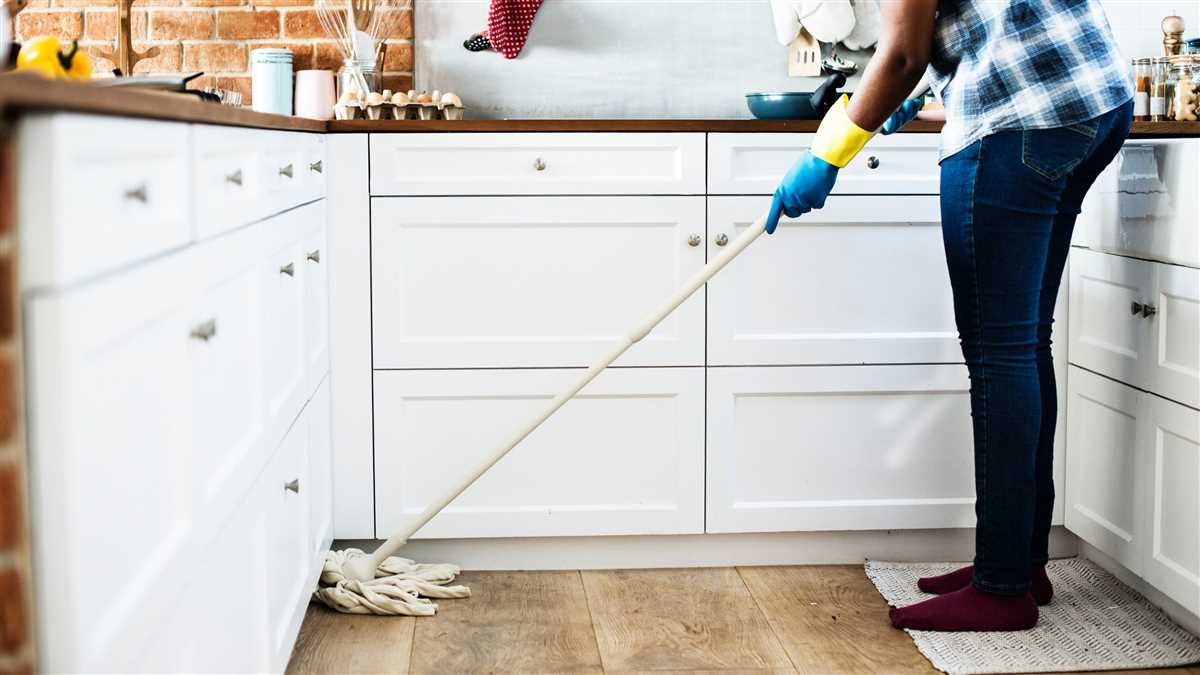
If you have hard water in your home, you may want to consider using a water softener or installing a water filter. This can help reduce limescale buildup not only in your dishwasher but also in other appliances and pipes.
In conclusion, preventing limescale in your dishwasher is important for maintaining its performance and prolonging its lifespan. Whether you choose to use dishwasher salt or alternative ingredients, taking these preventive measures will ensure cleaner and more efficient dishwashing.
FAQ
What is limescale?
Limescale is a hard, chalky off-white deposit that is formed when hard water evaporates or is heated. It is mainly composed of calcium carbonate and is commonly found on faucets, showerheads, and other surfaces that come into contact with water.
Why is limescale a problem?
Limescale can build up over time and cause blockages in pipes and appliances. It can reduce the efficiency of appliances like dishwashers and washing machines, leading to higher energy bills. Additionally, limescale can make taps and fixtures look dirty and unsightly.
What is dishwasher salt used for?
Dishwasher salt is used to soften the water in the dishwasher. It helps to prevent limescale build-up on the heating element and the dishes. The salt is added to a special compartment in the dishwasher and is automatically released during the rinse cycle.
Is dishwasher salt necessary?
Dishwasher salt is not always necessary. It depends on the hardness of the water in your area. If you live in an area with soft water, you may not need to use dishwasher salt. However, if you live in an area with hard water, using dishwasher salt can help prevent limescale build-up and improve the performance of your dishwasher.
What can I use instead of dishwasher salt?
If you don’t have dishwasher salt or prefer not to use it, you can try using a citric acid-based descaler or vinegar. These can help to remove limescale and keep your dishwasher clean. However, it’s important to check the manufacturer’s instructions before using any alternative to dishwasher salt.
Can I make my own dishwasher detergent tablets?
Yes, you can make your own dishwasher detergent tablets. There are many recipes available online that use simple ingredients like baking soda, citric acid, and dish soap. Making your own detergent tablets can be a cost-effective and environmentally-friendly option.
Are DIY dishwasher detergent tablets effective?
DIY dishwasher detergent tablets can be effective, but their performance may vary depending on the recipe and ingredients used. Some people find that homemade tablets work well for them, while others prefer commercial dishwasher detergents. It may be worth experimenting with different recipes to find one that works best for you.














